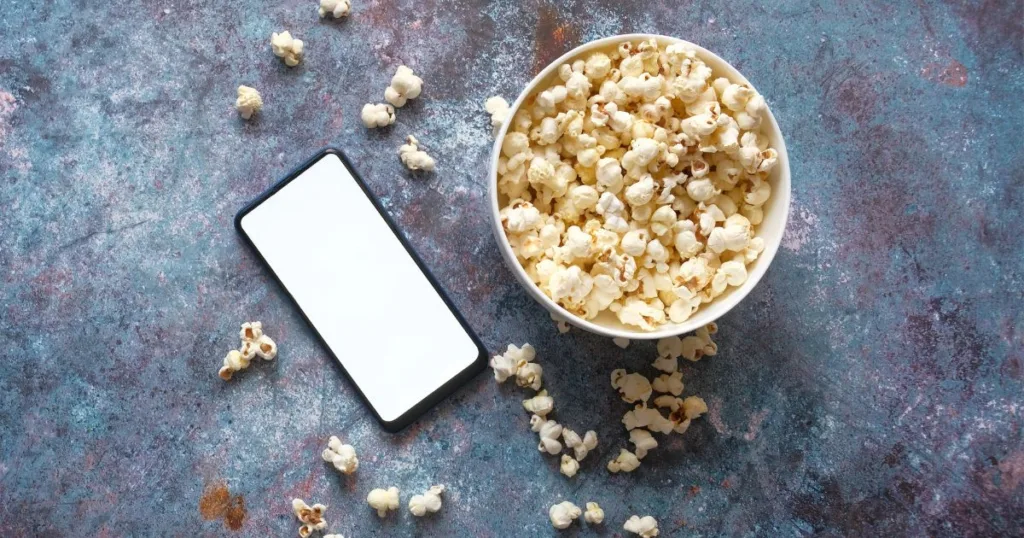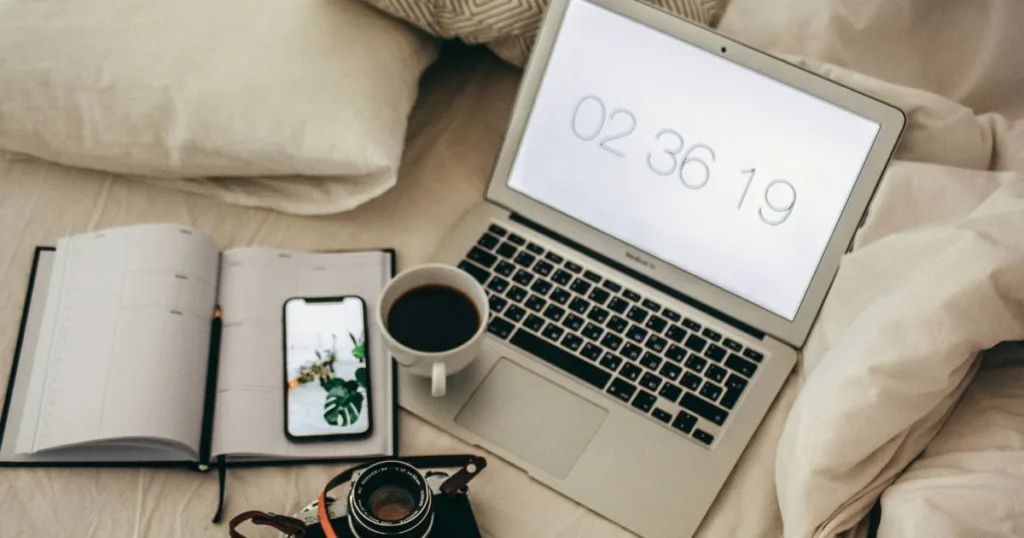In today’s fast-paced world, where information bombards us from every direction, it is easy to feel overwhelmed. As a consequence, our brains have also significantly shifted their functioning style leading to various mental health related problems. One of these is constant popping of thoughts and ideas. Popcorn brain is the term given to such brains.
What Is Popcorn Brain?

Popcorn brain refers to the state of constant mental stimulation and distraction resulting from our exposure to vast amounts of information. Like popcorn kernels bursting in a hot pan, our minds are constantly stimulated by notifications, emails, social media updates, news alerts, and the endless stream of content available online.
Coined by UW iSchool researcher David Levy in 2011, popcorn brain is what happens when the brain is so accustomed to the overstimulation and multitasking of the digital world, the new tabs, the constant scrolling, the ding of new notifications that the brain itself begins to mimic and thoughts begin to pop around like over excited popcorn kernels.
Causes Of Popcorn Brain
Several factors contribute to the prevalence of a popcorn brain:
Digital Devices:
The proliferation of smartphones, tablets, and laptops means that we are always virtually connected to the internet and inundated with information.
Social Media:
Platforms like Facebook, Twitter, Instagram, and TikTok are designed to keep us engaged, leading to endless scrolling and consuming bite-sized content.
Information Overload:

With the internet at our fingertips, we have access to an unprecedented amount of information. While this can be empowering, it can also be overwhelming, leading to cognitive overload.
Multitasking:
Many of us take pride in our ability to multitask, but research suggests that this can actually decrease productivity and contribute to mental fatigue.
Consequences Of Popcorn Brain
While our brains are incredibly adaptive, constant exposure to stimuli can have detrimental effects on our mental health and cognitive abilities. In most cases the impact can be contained and even reverted by some care. However, it is recommended to seek professional help if the problem becomes unmanageable.
Reduced Attention Span:
Continuous exposure to short bursts of information can diminish our ability to concentrate for extended periods, making it difficult to focus on tasks that require sustained attention. Dr. Gloria Mark, PHD in psychology has talked in detail about the reduced attention span and the impact it has on the current generation. Click here to read more.
Impaired Memory:
The brain’s ability to encode and retain information can be compromised when bombarded with excessive stimuli, leading to forgetfulness and difficulty in recalling details.
Increased Stress:
A popcorn brain is more likely to play tricks with you by making you believe that you have to manage too many tasks in too little time. This leads to the release of stress hormones, leading to heightened anxiety and feelings of overwhelm.
Decreased Creativity:
Constant distraction hampers our ability to engage in deep, uninterrupted thinking – a prerequisite for creativity and innovation.
Signs That You Have Popcorn Brain
Identifying whether you’re experiencing popcorn brain involves recognizing certain signs and symptoms that indicate your mind may be overloaded with information. Here are some common indicators:
Constant Distraction:
You find it difficult to focus on tasks without being distracted by thoughts, notifications or external stimuli. In fact, you are not able to focus anywhere in totality. It has become difficult to be present at one thing and focus on that task in hand only.
Impulsive Behavior:
You often feel compelled to check your phone, email, or social media accounts, even when it’s not necessary or appropriate. Often there are zero notifications and your phone sound is still on. Nevertheless, you check it every 5 minutes unnecessarily.
Forgetfulness:
You frequently forget important details, appointments, or tasks due to the sheer volume of information competing for your attention. It is said that not practicing the brain deactivates it. Constant deactivation of the brain is harmful for cognitive memory.
Difficulty Relaxing:
You struggle to unwind and relax, constantly feeling the urge to stay connected and consume more information. There is not a moment when you are free of thoughts, worries, negative ideas, stress or anxiety. Moreover, a variety of distractions make it difficult for you to relax.
Feeling Overwhelmed:
You experience feelings of stress, anxiety, or overwhelm, particularly when faced with a large amount of information or multiple tasks at once.
Short Attention Span:
You find it challenging to engage in activities that require sustained attention, such as reading a book or watching a movie, without becoming bored or restless. This has also been caused by the changes in the content that we consume. With social media content such as reels, shorts etc. your brain has become accustomed to changing content or emotion after every 15 seconds.
Sleep Disturbances:
Your sleep patterns may be disrupted due to excessive screen time or racing thoughts, leading to difficulty in falling asleep or having uninterrupted sleep throughout the night. Constant thoughts, stress, worries etc. have further aggravated and resulted in lack of proper sleep contributing to mental health issues.
Decreased Productivity:
Despite spending a lot of time on various tasks, you may find that your productivity levels are lower than expected, as you frequently switch between tasks or lose focus easily.
Physical Symptoms:
You may experience physical symptoms such as headaches, eye strain, or tension in the neck and shoulders, which can be exacerbated by prolonged periods of screen time and cognitive overload.
Difficulty in Disconnecting:
You find it challenging to disconnect from digital devices, even during leisure time or vacations, feeling a constant need to stay connected and informed.
Ways To Manage Popcorn Brain
While it may seem like an inevitable consequence of modern life, there are steps we can take to mitigate the effects of popcorn brain:
1. Limit Screen Time

Set boundaries around your digital consumption by scheduling regular breaks from screens and engaging in activities that promote relaxation and mindfulness. Certain applications such as Tik-Tok, Instagram let you set maximum time to spend after which a reminder is sent. This may help you to get off from the screen.
2. Practice Mindfulness

Cultivate mindfulness through practices such as meditation, yoga, or simply taking moments throughout the day to breathe deeply and focus on the present moment. Mindfulness can help reduce stress, difficult emotions and improve overall physical and mental health.
Read more on practicing Mindfulness here.
3. Prioritize Your Tasks
Break tasks into smaller, manageable chunks and focus on one thing at a time to avoid being overwhelmed. You can also take help of different online and offline tools such as planners, To-Do Lists etc.
4. Establish Digital Boundaries
Turn off non-essential notifications, designate specific times for checking email and social media, and consider implementing “digital detox” days where you disconnect entirely. If days become too impractical for you, make sure to set a digital detox time for yourself everyday.
5. Engage in Offline Activities:

Rediscover the joy of offline pursuits such as reading, spending time in nature, or engaging in hobbies that require sustained attention and creativity. A number of researches prove that spending time in nature can have positive impact on your mental health. Hence, engaging in offline activities can ultimately improve your physical and mental health.
6. Practicing Slow Living:
In your day today hustle, look out for sometime that you can use to unwind yourself. Starting your day slowly, taking breaks from technology, cooking and eating slowly etc. can be few exercises that you can do to practice slow living. This is a conscious way of living by deciding what’s beneficial for your well being.
Read more about Slow Living.
Final Words
Popcorn brain is a natural response to the information-rich environment in which we live, but it doesn’t have to dictate our lives. By understanding the causes and consequences of the popcorn brain and implementing strategies to manage it, we can reclaim control of our attention and cultivate a healthier relationship with technology and information. So, let’s take a step back, unplug, and give our brains the space they need to breathe and thrive in an increasingly noisy world.
Related Read:
How I Let Go Overthinking And Started Living In Present


Your point of view caught my eye and was very interesting. Thanks. I have a question for you.